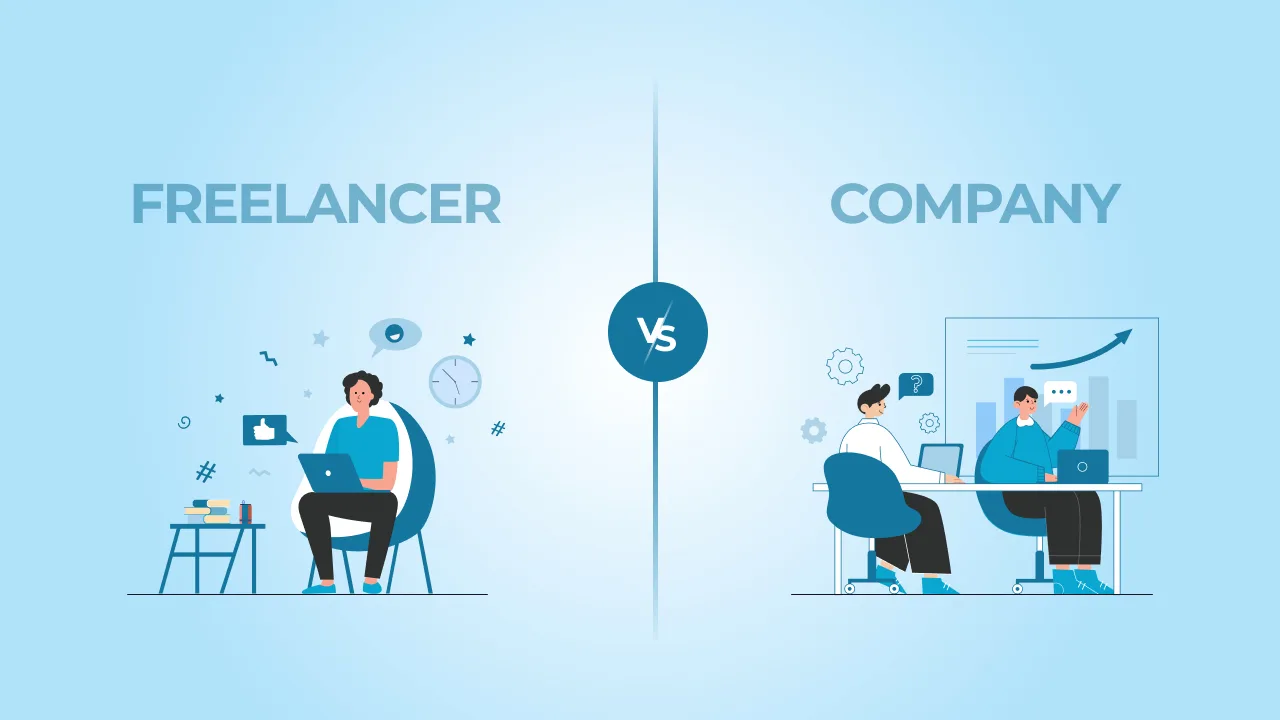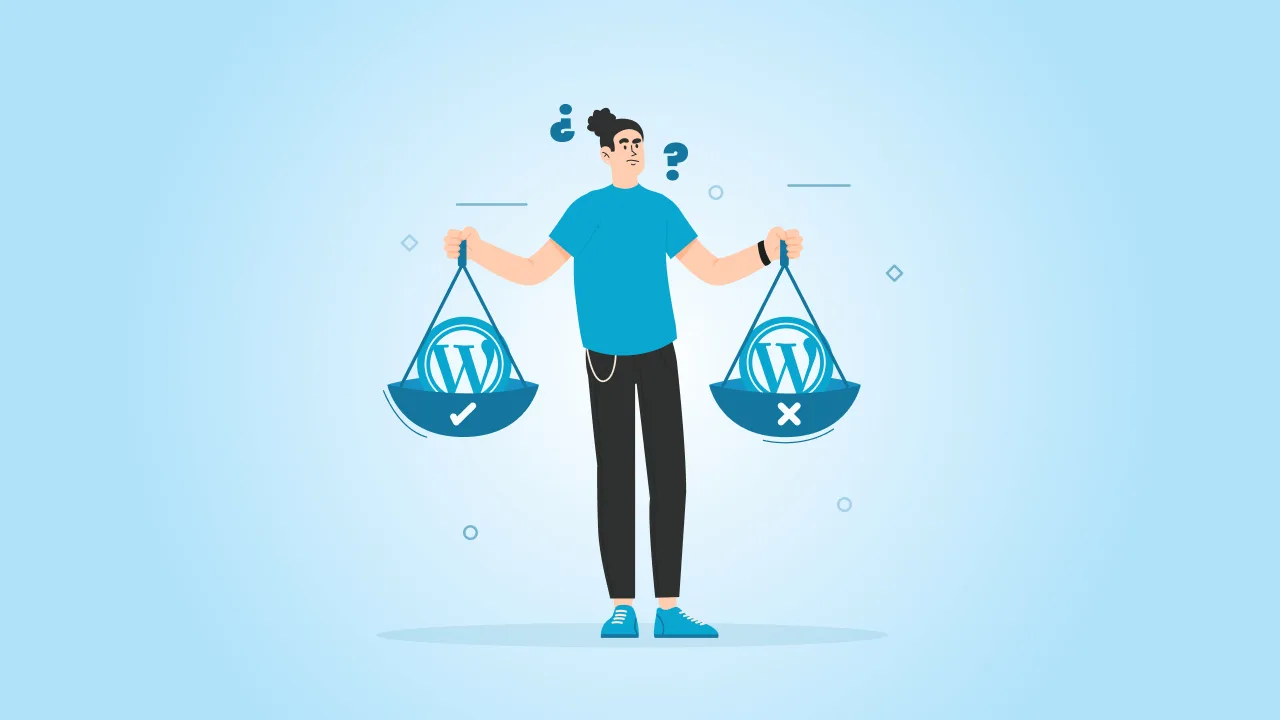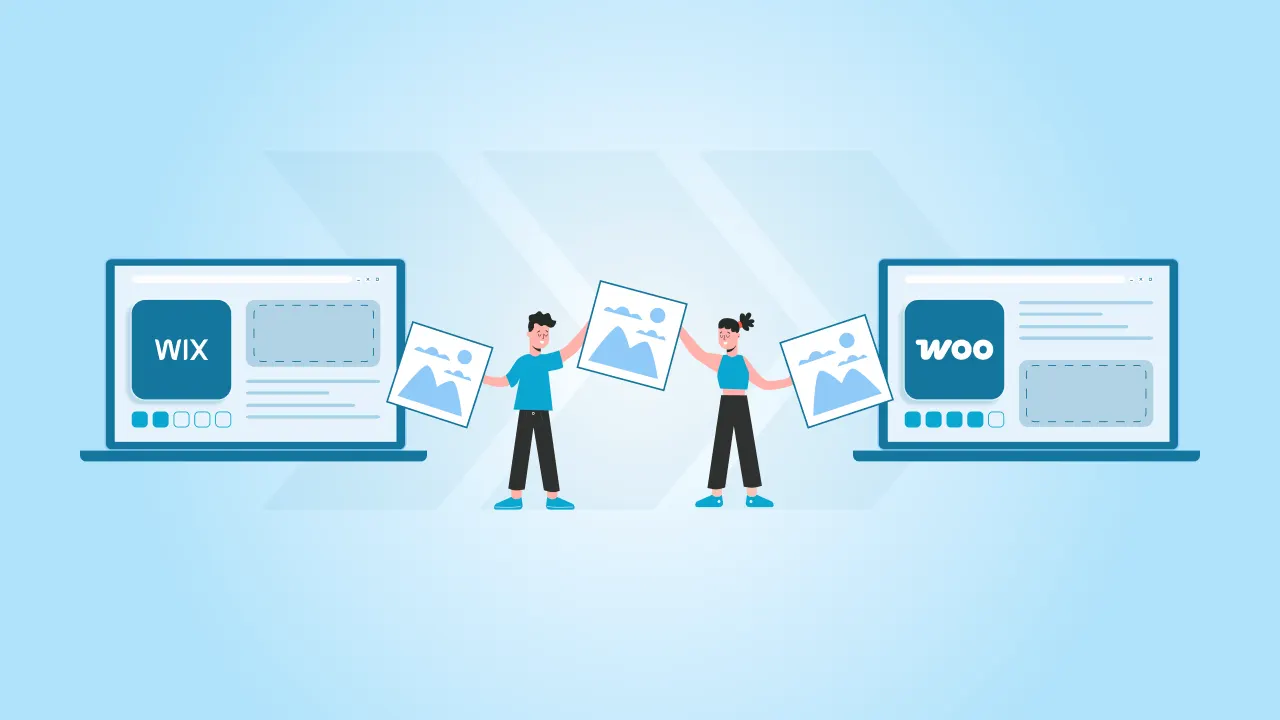Let’s say you hire a Shopify agency. At first, everything looks great—amazing proposals, beautiful examples of their work, and big promises about results for your online stores.
But after a couple of months, deadlines start getting missed, emails go unanswered, and your “dream store” isn’t turning out anything like you imagined.
What happens next? Usually, you are stuck choosing between accepting mediocre work or pulling the plug entirely. Either way, you lose time and money.
Choosing the wrong Shopify agency can quickly become a costly mistake—but it doesn’t have to end that way.
In this post, we will show you exactly what to look for (and what to avoid), so you can pick a Shopify agency that delivers on its promises and truly cares about your business.
⏰ 60-Second Summary
- Clearly define your business goals upfront—knowing exactly what you want helps you easily identify which eCommerce agency fits your needs.
- Assess an agency’s Shopify-specific expertise, including whether the agency specializes in advanced platforms like Shopify Plus or if they’re limited to basic store setup.
- Always choose a reputable agency by carefully reviewing their client testimonials, proven results, and real-world case studies rather than relying solely on their portfolio.
- Look beyond pricing: Focus instead on key factors such as technical skill, communication style, digital marketing expertise, and long-term support.
- Before making a decision, schedule a consultation to ensure the eCommerce agency truly understands your vision and can genuinely help your online business succeed.
Best Tips to Choose a Shopify Agency
Here are some tips to help you choose the right Shopify agency for your business:
1. Clearly Define Your Business Goals (Before You Start Looking)
Most businesses skip this step—and that’s usually why they struggle later. Choosing a Shopify agency without clear goals in mind is like trying to find something in the dark: you might stumble upon the right thing by chance, but it’s more likely you will pick something that’s just “close enough.”
Leveraging the Shopify platform effectively requires clear business goals to guide the agency’s efforts.
- Higher conversion rates?
- Improved mobile user experience?
- Increased average order value?
- Easier backend management of products or inventory?
- Are you looking for a complete website redesign, minor tweaks, or ongoing support?
- Is your current store underperforming, or are you planning to scale aggressively?
- Does your project need custom app integrations, specialized payment gateways, or unique features that go beyond standard Shopify capabilities?
What am I hoping the agency will achieve for my business?
Do I need a full redesign or just improvements to my existing store?
How complex is my Shopify project?
Let cmsMinds show you exactly how our specialized Shopify services deliver real, measurable results. Your successful eCommerce store setup starts here.
2. Look Beyond the Surface (Check the Agency’s Real Shopify Expertise)
Anyone can call themselves a Shopify “expert,” but you will quickly notice there’s a big difference between an agency that’s great at marketing itself and one that’s genuinely skilled in Shopify development.
So, once you know exactly what your business needs, the next step is to carefully assess the agency’s Shopify-specific expertise.
Here’s how you can do it effectively:
Start by Checking Technical Experience (Not Just Design!)
- Do they have experience with custom Shopify development, or do they primarily rely on pre-made templates?
- Can they handle Shopify integrations with third-party apps like ERP systems, inventory management tools, or unique payment gateways?
- Ask for concrete examples or case studies where they tackled similar challenges.
- Are they familiar with Shopify Plus development or Shopify app development if your business requires enterprise-level solutions?
- Can they handle complex customizations or API integrations that your business might need?
Look beyond attractive screenshots or impressive logos on their portfolio page. Instead, dive deeper into specifics:
Check their proficiency in different Shopify services:
Don’t Forget to Verify Technical Skills Beyond Just Design
-
Good design is important, but your Shopify store needs to perform well technically, too:
- How fast do their stores load?
- Do they understand Shopify SEO best practices to keep your store search-engine friendly?
- Can they optimize your website for mobile users, where most sales typically happen?
You will find some agencies that excel at aesthetics but struggle when things get technical. Others might offer brilliant technical solutions but fall short on user-friendly designs. Aim for an agency that strikes the right balance.
How Do You Check for Real Shopify Expertise?
- Shopify Partner Status: While not every good agency is a certified Shopify Partner, agencies with partnership certifications often have proven experience and credibility.
- Ask direct, detailed questions about their approach and Shopify knowledge during your conversations. Pay attention to whether they clearly and confidently explain solutions or if they seem uncertain and overly generic.
- Consider their suggestions: Experienced agencies will proactively suggest improvements and identify potential issues early, signaling genuine Shopify expertise.
3. Evaluate Their Track Record—Do Their Clients Actually Get Results?
It’s easy for agencies to showcase a beautiful portfolio on their website. Slick designs, impressive visuals, and recognizable brand names can quickly grab your attention.
But here’s the truth most companies won’t openly share: A great-looking portfolio doesn’t always equal real-world results.
Instead of just skimming through pretty screenshots, go deeper. Here’s exactly what you should focus on:
Pay Attention to the Details of Their Case Studies
-
Look for measurable results: Did the agency clearly show how their work impacted a client’s sales, conversion rate, or performance metrics?
For example, simply building an attractive Shopify site isn’t enough. Did that new design actually increase sales or reduce bounce rates?
-
Ask for Specific Examples: Request detailed case studies, especially those relevant to your business or industry.
See how the agency solved real client problems, like improving site speed, handling complex integrations, or creating customized checkout experiences.
Don’t be shy—ask directly how they’ve delivered measurable value for clients before you.
- Read Between the Lines in Client Testimonials: Testimonials on websites are usually handpicked, but you can still read between the lines. Look beyond praise about being “great to work with” and instead focus on testimonials that mention real outcomes like “boosted conversions by X%” or “helped us achieve our growth targets.”
- Go a Step Further—Ask for References: If you feel the portfolio isn’t giving you enough information, ask the agency for client references. A quick call or email with an existing or past client can often give you valuable insights into things agencies won’t share upfront, such as responsiveness, consistency, reliability, and ability to handle problems quickly and professionally.
4. Pay Attention to How the Agency Communicates (It Reveals More Than You Think)
When you are working closely with an agency, communication can either simplify your life or turn your project into a frustrating guessing game. Unfortunately, most businesses don’t pay enough attention to this until it’s too late.
So, before you sign anything, ask yourself these important questions:
-
How clear and responsive has the agency been so far?
Their communication style during the early stages is often a glimpse into what your relationship will look like later. If they’re already taking days to respond to emails or aren’t clearly answering your questions now, expect the same—or worse—once you’ve hired them.
-
Do they listen to your concerns, or just push their ideas?
Good communication isn’t just quick responses—it’s about actively listening. Does the agency genuinely try to understand your business, goals, and challenges? Or are they simply pitching generic solutions?
-
What’s their typical project process?
Ask them directly: “What happens once we get started?” They should be able to clearly outline their onboarding, project milestones, and how often you can expect updates. Look out for vagueness—if their explanation is unclear or overly complicated, that’s usually a sign of disorganization behind the scenes.
-
Will you have a dedicated contact person?
Agencies that assign a dedicated account manager or project manager tend to be better organized. Having one clear point of contact can save you hours of frustration and miscommunication down the line.
5. Think About Their Technical Skills—Not Just Their Promises
Most Shopify agencies talk a big game about “expertise,” but you will want to know if they can actually handle the technical aspects of your project. The last thing you want is to discover halfway through the project that their skills stop at basic theme customization.
Here’s how to really evaluate their technical skills without getting lost in the jargon:
- Can they handle custom Shopify apps or integrations (like CRM, ERP, or marketing automation)?
- Have they solved complex problems, like checkout customization or integrating specific payment gateways?
- Do they have experience with Shopify Plus if you’re scaling fast or have more advanced needs?
Ask Specific Technical Questions:
Pay Attention to Their Problem-Solving Approach:
Don’t just ask what they’ve done; ask how they approached challenges. The way they talk about overcoming problems can reveal if they rely on quick fixes or genuinely understand Shopify’s deeper technical complexities.
Evaluate Their Recommendations Carefully:
Experienced Shopify agencies should comfortably suggest tools, apps, or solutions tailored specifically to your business needs—not just recommend popular or generic options.
Look Beyond the Surface:
Great Shopify sites don’t just look good—they perform seamlessly. Find out if the agency actively focuses on performance optimization (fast page loads, clean coding standards, mobile responsiveness, etc.) rather than just delivering something attractive.
6. Choose a Shopify Agency That Understands Marketing (Not Just Shopify Development)
You’re not hiring a Shopify development company just to build a store. You’re hiring them to help your business sell more and grow faster. A common mistake businesses make is choosing an agency that’s great at technical tasks but falls short when it comes to digital marketing.
Here’s why marketing expertise matters, even when choosing a Shopify agency:
They should think beyond just the website:
Building a beautiful, functional Shopify store is essential—but what happens next? Without a solid marketing strategy, even the most stunning online store won’t drive sales or attract visitors. Your Shopify agency should understand how to build stores optimized for SEO, conversions, and effective marketing.
Ask about their approach to digital marketing:
Find out if the agency takes marketing seriously. Ask how they integrate strategies like SEO, social media marketing, email marketing, or content marketing into the Shopify development process. Do they plan your store’s design and features with customer acquisition and retention in mind, or do they see marketing as an afterthought?
Look for marketing-driven recommendations:
Experienced Shopify agencies won’t just suggest technical solutions—they’ll recommend strategies designed to drive traffic, conversions, and long-term growth. For instance, do they discuss things like user journeys, landing pages optimized for conversions, or apps and integrations that support your marketing strategy?
Evaluate their strategic thinking:
Good Shopify agencies understand that digital marketing isn’t a separate task; it’s built into every aspect of your store. Your agency should ask strategic questions about your target audience, your competitors, and your goals—and then use that information to shape every decision, from design to functionality.
7. Think Long-Term—Ask About Ongoing Support and Maintenance
One of the biggest mistakes business owners make is treating their Shopify store like a one-time project: launch and then forget about it. But running a successful online store is a continuous job, not just a “set it and forget it” scenario.
Here’s what you should keep in mind regarding ongoing Shopify support and maintenance when choosing a Shopify agency:
Clarify What “Support” Actually Means
- Does the agency just handle bug fixes, or will it proactively manage things like software updates, security patches, and store performance?
- Ask specifically about response times: How quickly will they address issues or emergencies if your site goes down or experiences problems?
Think Long-Term
- Find out if the agency offers monthly Shopify support packages or if you’re left on your own after launch.
- A reliable agency should actively manage updates, monitor store performance, and address issues promptly—without you needing to chase after them.
Understand the Importance of Shopify Updates
- Shopify regularly releases updates that can improve store performance, security, and sales. If your agency isn’t proactive about handling these updates, your store could quickly fall behind competitors.
- Ask the agency how they handle Shopify’s regular platform updates and what their strategy is to ensure your store remains secure and up-to-date.
Discuss How They Handle Emergencies and Downtime
- What happens if your website crashes during a big sale or promotion? Will the agency respond quickly, or will you end up stuck with downtime?
- You need a partner who can offer reassurance and immediate assistance—not one who disappears when things get tough.
8. Don’t Just Compare Prices—Understand the Real Value
When it comes to Shopify agencies, cheaper isn’t always better, and expensive doesn’t always mean quality. Instead of focusing solely on price, focus on the value you are getting from your investment.
After all, your Shopify store is your online storefront—and you wouldn’t cut corners on a physical store either, right?
This is how to realistically evaluate pricing and value:
Transparency Matters More Than the Lowest Cost
- Look carefully at each agency’s pricing structure. Does it clearly show what you’re paying for—or does it feel deliberately unclear or overly complicated?
- Watch out for hidden costs or surprise charges that pop up after the project starts.
Evaluate the Pricing Model: Fixed vs. Hourly vs. Retainer
- Agencies usually offer fixed-price projects, hourly rates, or monthly retainers. Make sure you understand which model fits your needs best.
- For instance, if you anticipate ongoing changes and improvements, a monthly retainer might offer better long-term value.
Consider the Long-Term Return on Investment (ROI)
- How quickly can the agency help your Shopify store become profitable?
- Agencies with a good understanding of both Shopify development and digital marketing strategy will often provide solutions that lead to sustainable growth and revenue, far exceeding the initial cost.
Don’t hesitate to discuss ROI
- Ask the agency directly: “How have your previous projects impacted your clients’ bottom lines?”
- Great agencies should comfortably discuss measurable results, including growth in traffic, improved conversions, or increased revenue.
9. Check Client Reviews—Do Their Clients Love or Regret the Decision?
Every Shopify agency will say they are the best Shopify agency around, but how can you know for sure?
This is where client reviews and testimonials become your secret weapon. Reading what real clients have to say can reveal a lot more about an agency than their website ever could.
Here’s how to properly evaluate client reviews to ensure you’re making the right choice:
Look for Genuine Reviews and Testimonials:
Check third-party platforms like Clutch, Google Reviews, or even the Shopify Experts directory. Avoid relying solely on reviews published directly on the agency’s website—those tend to highlight only the positive experiences.
Dig Deeper to Understand Results:
Great reviews won’t just say things like, “We enjoyed working with them”—they will discuss specific outcomes. For example, look for phrases like:
- “They transformed our eCommerce store and boosted our online sales.”
- “Our marketing efforts became much easier and more effective after launching on Shopify Plus.”
Pay Attention to Shopify Plus Experience:
If you are running a larger or rapidly growing eCommerce store, the best Shopify agency for you will have proven experience with Shopify Plus. Reviews and testimonials should clearly reflect successful outcomes using Shopify Plus, highlighting the agency’s ability to handle advanced integrations, high-volume sales, and more sophisticated marketing efforts.
Reach Out for References (If Necessary):
Don’t hesitate to ask the agency directly for references from previous clients. When contacting these references, ask specific questions like:
- How did the agency improve your marketing efforts?
- Were they able to scale your Shopify store effectively?
- Would you recommend this agency to another eCommerce brand?
10. Schedule a Consultation—See if the Chemistry Feels Right
Before you finalize your decision, you need more than just emails and proposals—you need a real conversation. Think of your first consultation as an informal interview.
It’s your chance to see whether you can picture yourself comfortably working with this team long-term.
Here’s why this step is critical (and how to make the most of it):
Prepare Good Questions—Not Generic Ones
Don’t just show up to the consultation hoping the agency will do all the talking. Instead, ask specific questions like:
- “Can you share an example of how you improved sales for another eCommerce store like mine?”
- “How involved will I need to be during the project?”
- “What marketing efforts do you typically recommend alongside Shopify development?”
- “Have you worked with Shopify Plus before, and what successes have you seen?”
Their responses to these questions will reveal whether they truly know their stuff—or if they’re just winging it.
Pay Attention to the Details During the Call
It’s not just what they say but how they say it:
- Are they actively listening to your concerns?
- Do they understand your business? (Do they ask good, thoughtful questions?)
- Does their approach seem flexible and tailored specifically for you, or is it just a generic pitch?
Choosing the Right Agency Can Make All the Difference
Launching or growing your Shopify store isn’t a small step—it’s a big investment in your business’s future. From the initial store setup to ongoing support and marketing, the agency you choose will significantly impact your success.
The truth is, not every Shopify agency will be a great fit. But by clearly defining your goals, assessing their technical expertise, carefully checking client reviews, and having genuine conversations, you’ll greatly improve your chances of finding the right agency.
At the end of the day, choosing the right Shopify agency is about more than just avoiding mistakes—it’s about finding a partner who understands your eCommerce vision, simplifies the complexity, and turns your online store into a profitable, successful business.
If you follow these steps, you are already ahead of most business owners. Now you are equipped to make a confident decision and choose an eCommerce partner who can help take your store exactly where you want it to go.
Talk to our team at cmsMinds today and find out how we can help you build, optimize, and grow a profitable Shopify store that matches your vision.





